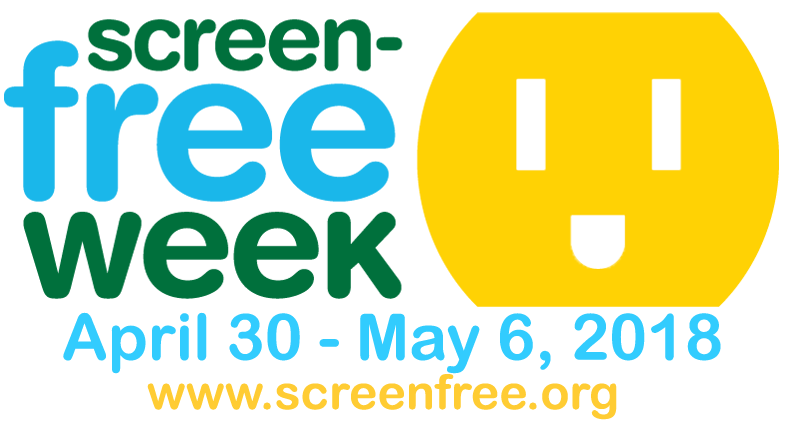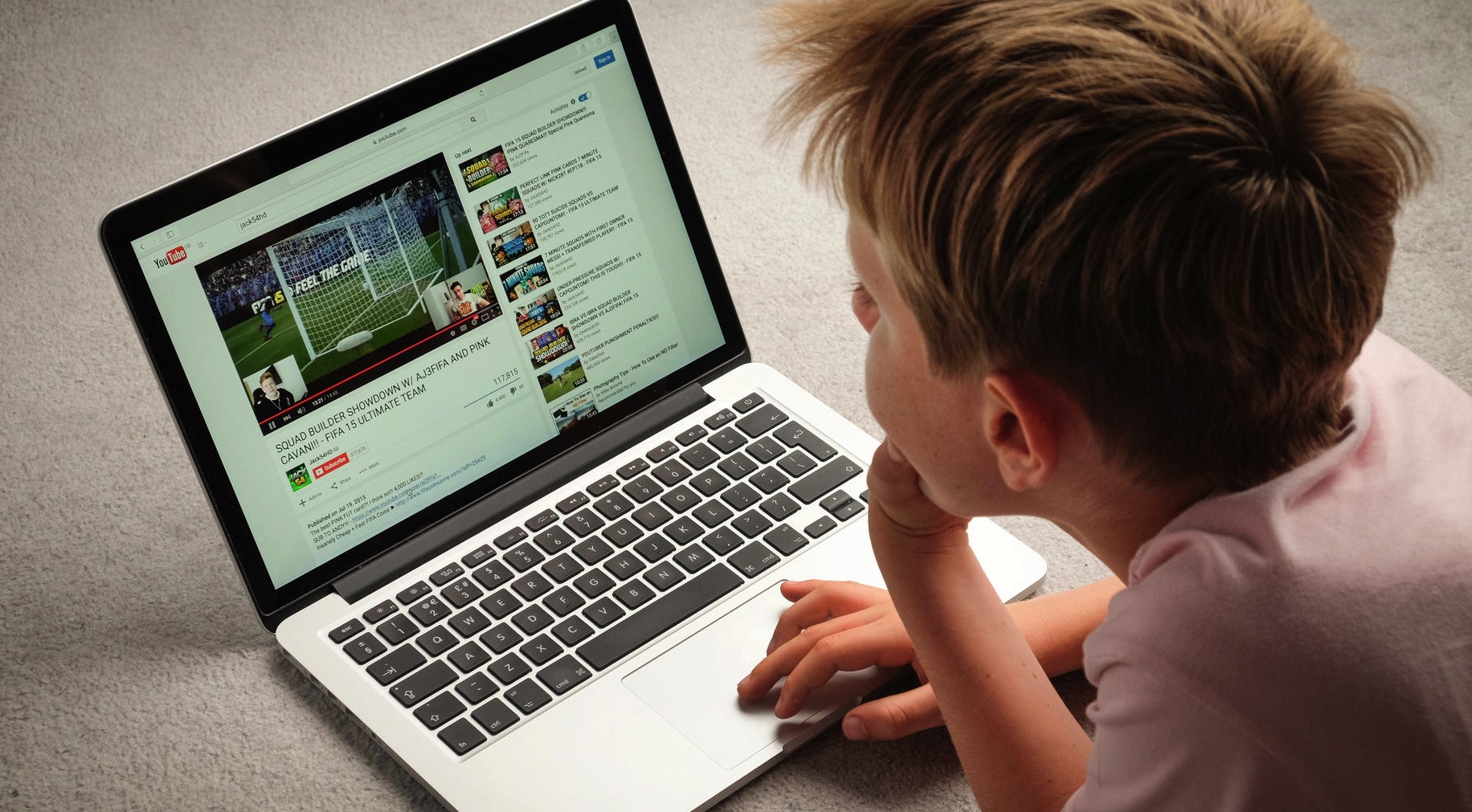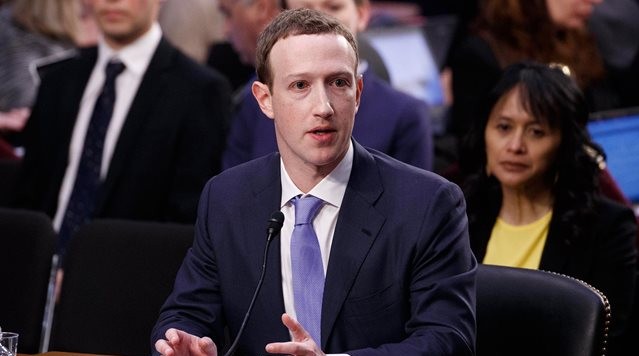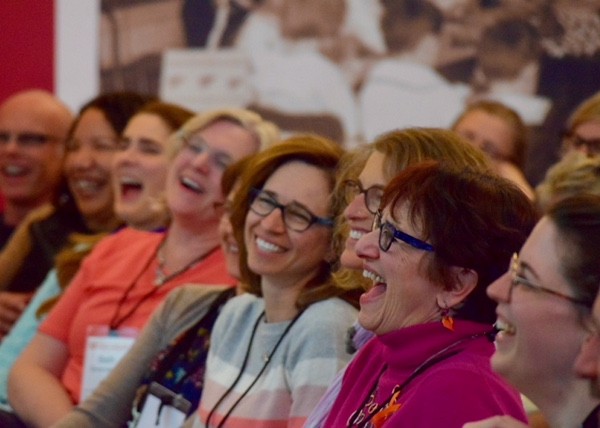| |  | Screen-Free Week is here! From April 30 – May 6, thousands of schools, community groups and families will turn off their ad-supported devices and rediscover life beyond the screen! The idea of a whole week without screens can be daunting, but year after year, kids and families report great results. Like 11 year old Telan, whose Alaska school went screen-free together: “When I got home, my mom and dad said we weren’t allowed to watch TV, use the computer or any electronics for the whole week. Surprisingly, my siblings and I barely fought because we had nothing to fight about. We did so many fun things together and learned a lot about each other in school and out.” Or Meghan Delman, a parent who discovered new things about her kids and herself: “I realized how many games the kids could play with each other that I thought they needed me to help facilitate. I wasn’t giving them enough credit and that was great as a parent to acknowledge and grow upon.” There are Screen-Free Week events all around the world, at libraries, schools, and museums, like the Original Children’s Playhouse Museum in Frederick, MD, which is partnering with 7 elementary schools to help 3,000 kids unplug and play! Celebrating is easy – just unplug! Use our social media images to let everyone know you’re signing off. And when the week is over, send your photos, reflections, and stories to us at ccfc@commercialfreechildhood.org. Happy Screen-Free Week! | |  | CCFC leads coalition asking FTC to protect kids from YouTube On April 9, CCFC and the Center for Digital Democracy took a groundbreaking step to protect children’s privacy: We filed a Federal Trade Commission (FTC) complaint detailing how Google is breaking the law by collecting personal data from children on YouTube without parental consent. Our complaint was supported by a coalition of 23 consumer and privacy groups and made international headlines, including the New York Times, the Guardian, Associated Press, and Good Morning America. The Children’s Online Privacy Protection Act (COPPA) is the only federal law regulating how to handle kids’ online data. Its demands are pretty straightforward: if you run a site for kids, or if you know kids are using your site, you need to a) tell their parents what kind of personal data you collect, and b) get verifiable parental permission before you gather any information from or about kids. Google doesn’t even try to meet these requirements. Instead, their privacy policy ridiculously says that YouTube isn’t for children under 13, when it’s actually one of the most popular kids’ websites in the world! In May, CCFC and Center for Digital Democracy will meet with the FTC and urge them to hold Google accountable for serious violations: collecting billions of data points from millions of children, including things like location and browsing habits, and making untold amounts of money off the use and sale of that data without ever telling parents. The FTC must force Google to comply with COPPA, including assessing penalties – which could total in the billions of dollars — to show Google and other tech companies that children’s wellbeing must come before profits. | | |  | CCFC’s Messenger Kids campaign raised in Zuckerberg testimony The world watched Mark Zuckerberg testify before Congress in April – and they heard about CCFC’s Messenger Kids campaign. Most legislators questioned the Facebook data collection practices that allowed Cambridge Analytica to access users’ sensitive information. But Senator Richard Durbin of Illinois pressed Zuckerberg about Facebook’s new app for young children. "On January 30th, the Campaign for a Commercial-Free Childhood and lots of other child development organizations warned Facebook. They pointed to a wealth of research demonstrating that excessive use of digital devices and social media is harmful to kids, and argued that young children simply are not ready to handle social media accounts at age 6. In addition, there are concerns about data that is being gathered about these kids." Durbin asked if Zuckerberg could guarantee that kids’ data won’t be illegally collected or shared. Zuckerberg said only “in general, that data is not going to be shared with third parties.” “In general” was a red flag to us and to Durbin, who said it “seems to suggest that in some circumstances it will be shared with third parties.” Pressed, Zuckerberg said it would not, but we’re not convinced. Regardless, young kids don’t belong on social media, period. It’s time to pull the plug on Messenger Kids. | | | |  | We’re Tackling Unfair Alcohol Ads Our friends at Truth in Advertising (TINA) urged hip hop mogul DJ Khaled to stop exploiting the devotion of the youth who follow him on Snapchat. In his snaps, he drinks hard liquor, displays the bottle, and mentions the brands for which he’s a paid spokesperson, but never mentions that he’s being paid – all in front of an audience of millions of kids. CCFC signed a letter with TINA and other groups, demanding that Khaled knock it off or we would report to the FTC. In response, Khaled has cleaned up his act. We also joined a coalition that sent a letter to the U.S. Department of Health and Human Services, asking them to investigate National Institutes of Health officials who, according to a report in the New York Times, actively solicited donations from the alcohol industry to fund research which was supposed to show the public health impacts of drinking. Read more in Mother Jones. | | |  | Our First Conference Put the Action in Action Network! On April 20 and 21, nearly 200 practitioners, educators, early childhood professionals, parents, and caregivers met at Wheelock College in Boston to kick off the Children’s Screen Time Action Network! Attendees represented many disciplines and perspectives, but all agreed on three things: kids are spending too much time on digital devices, it’s undermining their wellbeing, and we can make a difference. Together, Action Network members strategized on how to reduce screen use in schools, help more children get time in nature, talk to parents about the techniques tech companies use to keep kids on deices, and create resources that will help families of all backgrounds and experiences. We can’t wait to see these exciting projects come to fruition – stay tuned! | | |  | Featured Resource This Screen-Free Week, kids will get the opportunity to engage in creative, child-driven play – exactly what they need to thrive! To learn more about kids and play, check out the TRUCE Guide for Using Children’s Books to Promote Play and TRUCE Play and Toy Guide. These resources help parents promote creative, imaginative play as an alternative to screen time. Founded by CCFC advisor Diane Levin, TRUCE (Teachers Resisting Unhealthy Children's Entertainment) creates resources for and provides information to parents and educators about the harmful effects of commercialism, media and marketing on children’s play, learning and behavior and recommends ways to counteract these effects. | | | | | | | Contact Us
Campaign for a Commercial-Free Childhood
89 South St., Suite 403
Boston, Massachusetts 02111
617-896-9368
ccfc@commercialfreechildhood.org | | | | | | | | | |